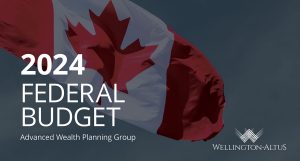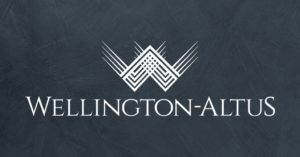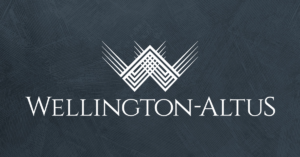Download this article as a PDF.
“As the central bank fights inflation, we will not make its job harder.”
On November 3, 2022, Canada’s Deputy Prime Minister and Minister of Finance, the Honourable Chrystia Freeland delivered the 2022 Fall Economic Statement (FES 2022). FES 2022 highlighted key metrics of the Canadian economy and the government’s proposed new spending measures.
FES 2022 acknowledged Canada’s economic outlook has slowed over the last few months, and that inflationary pressures are resulting in a higher cost of living and anxiety for many Canadians. The slowdown can be traced to three main factors: economic issues coming out of the last 30-plus months of COVID-19 lockdowns, the war in Ukraine, and rising interest rates by central banks to combat inflation.
Economic Overview
The government is confident that the Canadian economy will withstand the global economic slowdown that is anticipated by many. While Canada’s unemployment rate is at multi-decade lows, and its economic growth has outperformed its G7 peers’ year to date, admittedly its strong recovery post-Covid 19 is slowing down.
Domestically, Canada is vulnerable to:
- Labour market constraints – employers are struggling to fill their employment needs.
- Weakening consumer spending.
- Declining export figures due to global economic pressures.
- Continued over-reliance on resource and commodity sectors.
Globally, there are several points of concern that may affect the Canadian economy and recovery:
- Supply challenges will be a consistent constraint on economic growth.
- The impact of a reorientation of global trade patterns on Canadian exports, notably commodities.
- The continued consequences of a rapidly-aging population.
- Energy security considerations and transitioning to net-zero carbon emissions.
Inflation is the Top Global Economic Challenge
While inflation and recession risks have increased, central banks, including the Bank of Canada and the U.S. Federal Reserve, have raised interest rates in one of the most synchronized monetary-tightening cycles in decades. The Bank of Canada has been clear that it remains committed to using its monetary policy tools to return to the 2% target and keep inflation expectations more well-anchored. In an effort to curb inflationary pressures, the government intends to limit additional spending by exercising responsible, fiscal restraint.
“Continuing fiscal prudence will be important to ensure that inflation is not made worse or long lasting, while also ensuring the government retains the fiscal capacity to provide targeted support to Canadians”
2023 Potential Economic Scenarios
Given the above overview and recent domestic inflationary challenges, FES 2022 outlined two potential scenarios for the Canadian economy next year:
- A slowdown, stalled economy, or a soft landing in which Gross Domestic Product (GDP) slows to 0.7%, a jobless rate of 6.1% and a projected deficit of $36.4 billion; or
- A recession, downside, or a hard landing in which GDP shrinks by -0.9%, a jobless rate of 6.6% and a projected deficit of $49.1 billion.
The government believes that the first scenario is more likely to occur.
Impact of U.S. Inflation Reduction Act (IRA)
With the recent passing of the U.S. Inflation Reduction Act, the government indicated in FES 2022 that significant steps must be taken to ensure that Canada remains competitive in North America and the world. Canada’s governments and private sector will need to boost investments in areas such as critical minerals, clean energy, agriculture and electric vehicle manufacturing. Additional investment is also required in the education, training and skills development to transition to a net-zero economy and help make Canada a global leader in the clean energy and digital technology sectors.
Legislative Measures
ES 2022 announced the following legislative measures:
- Elimination of interest on student loans. The government proposes to amend the Canada Student Financial Assistance Act, the Canada Student Loans Act and the Apprentice Loans Act to make new loans and outstanding loans balances interest free.
- Canada Growth Fund. The government proposes to introduce legislation to enable the Minister of Finance to requisition amounts from the Consolidated Revenue Fund to capitalize the Canada Growth Fund, a new government investment fund aimed at catalyzing private-sector investment to meet Canada’s climate and economic objectives.
- Lower credit card transaction fees for small businesses. The government is publishing draft legislative amendments to the Payment Card Networks Act. Should the industry not agree to a solution in the coming months, the government will introduce legislation at the earliest opportunity in the new year and move forward to regulate credit card transaction fees.
“We are able to provide targeted support to the most vulnerable while shrinking our deficit and paying down our debt.”
Tax Measures
Previously Announced Measures
Included in FES 2022 was the government’s commitment to follow through on previously announced personal and corporate tax and related measures. Some of the more notable measures include:
- Tax-Free First Home Savings Account (FHSA)
- First-Time Home Buyers’ Tax Credit (HBTC)
- Multigenerational Home Renovation Tax Credit
- Residential Property Flipping Rule
- Enhanced Reporting Requirements for Trusts
- Canada Recovery Dividend and Additional Tax on Banks and Life Insurers
Personal Income Tax Measures
No changes were announced to personal income tax rates.
Extension of the Residential Property Flipping Rule to Assignment Sales
These measures, originally announced in Budget 2022, are aimed at ensuring profits from flipping residential real estate are subject to full taxation instead of capital gains treatment. Under the originally proposed rules, starting January 1, 2023, profits from disposition of residential property (including rental property) owned for less than 12 months would be deemed to be business income, subject to certain exceptions.
FES 2022 extended these rules to profits arising from the disposition of the rights to purchase a residential property via an assignment sale. The Residential Property Flipping Rules, including the expansion for assignment sales, would apply in respect of transactions occurring on or after January 1, 2023.
Automatic Advance for the Canada Workers Benefit (CWB)
The Canada Workers Benefit is a refundable tax credit that supplements the earnings of low- and modest-income workers. CWB eligibility is determined upon filing an individual income tax return. An advanced-payment option is available whereby the eligible taxpayer can receive up to half of their anticipated CWB entitlement through four advanced payments during the year.
Despite efforts to raise awareness of this option, it is not commonly used. FES 2022 proposes to automatically provide the current year CWB entitlement using these quarterly advanced payments, so long as the individual’s income tax return for the previous year is received and assessed by the CRA prior to November 1 of the current year. FES 2022 proposes the changes to the CWB payments to start in July 2023 for the 2023 taxation year.
Ensuring the Wealthiest Canadians Pay Their Fair Share – Alternative Minimum Tax (AMT)
The AMT exists to ensure high-income Canadians cannot disproportionately lower their taxes through the significant use of deductions, credits, and other means. The AMT legislation hasn’t been reviewed since 1986. FES 2022 reaffirms the government’s commitment to examining a new minimum tax regime to ensure all Canadians pay their fair share of taxes. FES 2022 notes a detailed proposal and implementation path will be released in Budget 2023.
Corporate Income Tax Measures
No changes were announced to corporate income tax rates.
Share Buybacks
FES 2022 announced the government’s intention to introduce a 2% tax on the net value of share buybacks by public corporations in Canada. This mirrors the recent U.S. IRA which imposes a 1% tax on buybacks after December 31, 2022. These measures are intended to encourage public corporations Canada to redirect such funds and instead invest corporate profits and available funds back into human resources and their business operations.
The details of this new tax will be announced in Budget 2023 and the tax would come into force on January 1, 2024.



